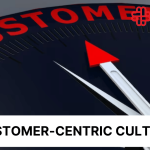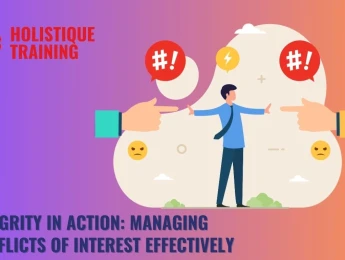- Table of Contents
- Introduction
- Understanding the Importance of Customer Care
- Why You Should Prioritise Customer Care
- Retention and Loyalty
- Competitive Advantage
- Brand Reputation
- Long-Term Relationships
- Further Proof: Statistics
- Enhancing Customer Care: Four Popular Approaches
- 1. Prompt and Responsive Support
- 2. Personalisation and Tailored Experiences
- 3. Self-Service Options
- 4. Proactive Communication
- Measuring Customer Care Success
- 1. Customer Satisfaction Score (CSAT)
- 2. Net Promoter Score (NPS)
- 3. Customer Effort Score (CES)
- 4. First Contact Resolution (FCR)
- Real-Life Examples of Exceptional Customer Care
- Zappos
- Ritz-Carlton
- Amazon
- Emerging Trends in Customer Care
- 1. Artificial Intelligence and Chatbots
- 2. Social Media Engagement
- 3. Eco-Friendly Customer Care
- 4. Omnichannel Customer Care
- 5. Personalised Customer Journey Mapping
- 6. Augmented Reality (AR) and Virtual Reality (VR) Support
- Conclusion
Introduction
As competition intensifies, businesses must recognise customer care's pivotal role in building strong customer relationships. In this blog post, we discuss the importance of prioritising customer care and practical approaches that companies can adopt to create exceptional experiences, nurture loyalty, and stand out in a crowded marketplace.
Understanding the Importance of Customer Care
Customer care encompasses all the activities and processes a company undertakes to meet its customers' needs, solve their problems, and ensure their satisfaction throughout their journey with the brand. It is the art of building and nurturing relationships with customers, surpassing their expectations, and creating a positive perception of the brand. By prioritising customer care, businesses can reap numerous benefits that drive long-term success.
Why You Should Prioritise Customer Care
To truly understand the importance of customer care, let's explore three key reasons why it should be a top priority for businesses.
Retention and Loyalty
Exceptional customer care is the bedrock of customer retention and loyalty. When customers feel valued, heard, and understood, they are likelier to develop a strong emotional connection with the brand. This emotional bond goes beyond transactional relationships, fostering a sense of loyalty that keeps customers coming back. Satisfied customers continue doing business with a brand and become its advocates. They share their positive experiences with friends and family, amplifying the brand's reach and influence. This organic word-of-mouth marketing is invaluable, leading to sustained growth and a dedicated customer base.
Competitive Advantage
In today's hyper-competitive market, where products and services are often similar, exceptional customer care becomes a powerful differentiator. When businesses invest in understanding their customers' needs and preferences, they can provide personalised experiences that resonate on a deeper level. By going the extra mile to exceed customer expectations, companies stand out from competitors who merely provide standard services. Customers are not just looking for products; they seek experiences and relationships. Exceptional customer care becomes a beacon, guiding them to choose one brand over another. In the long run, businesses that prioritise customer care attract new customers and retain existing ones, creating a loyal customer base that competitors find hard to penetrate.
Brand Reputation
A brand's reputation is intricately linked to its customer care level. Positive customer experiences and outstanding care contribute significantly to building a favourable brand image. When customers consistently receive excellent service, they develop trust and confidence in the brand. Satisfied customers become advocates, willingly sharing their positive experiences with others. In contrast, poor customer care can lead to negative reviews and damage the brand's reputation. With the advent of social media and online reviews, a single negative experience can quickly escalate, causing significant harm. By prioritising customer care, businesses can safeguard their reputation, ensuring every interaction leaves a positive impression. A strong brand reputation not only attracts new customers but also strengthens the loyalty of existing ones, creating a virtuous cycle of positive feedback and customer trust.
Long-Term Relationships
Customer care is not just about solving immediate problems; it's about building enduring relationships. When businesses invest in understanding their customers' needs, preferences, and pain points, they can tailor their offerings and services accordingly. This understanding leads to a continuous cycle of improvement, where customer feedback guides product development, service enhancements, and overall business strategies. Long-term relationships are built on mutual respect and trust. When customers know that a brand genuinely cares about their satisfaction and well-being, they are likelier to remain loyal even when faced with tempting offers from competitors. These relationships translate into recurring revenue streams, as loyal customers are more inclined to explore new products and services offered by a brand they trust implicitly.
In essence, prioritising customer care is not just a business strategy but a commitment to building meaningful customer relationships. It's about recognising the value of every customer beyond their immediate monetary contribution. By focusing on customer satisfaction, businesses pave the way for lasting success, one satisfied customer at a time. Exceptional customer care becomes the cornerstone upon which businesses can build a legacy, standing the test of time in a constantly evolving market landscape.
Further Proof: Statistics
The impact of customer service on purchasing decisions is remarkable. According to 123 Form Builder, an impressive 81% of customers state that a positive customer service experience encourages repeat purchases. In contrast, 70% admit to making purchasing decisions based on the quality of customer service. Customer satisfaction is a driving force behind sales growth. In fact, 64% of businesses have observed increased sales due to excellent customer service.
Enhancing Customer Care: Four Popular Approaches
Now that we understand the importance of customer care, let's explore four popular ways businesses can enhance their customer care strategies.
1. Prompt and Responsive Support
Prompt and responsive support is the cornerstone of exceptional customer care. Customers expect their issues and inquiries to be addressed swiftly and efficiently. Businesses can provide timely assistance by utilising various communication channels such as phone, email, live chat, and social media. Armed with in-depth product knowledge and problem-solving skills, well-trained support teams play a pivotal role in delivering outstanding customer service. Businesses promptly resolve issues and concerns and demonstrate their commitment to customer satisfaction. Quick responses resolve immediate problems and instil confidence in customers, making them feel valued and heard. This approach resolves problems and prevents minor issues from escalating into major grievances, ensuring a seamless customer experience.
2. Personalisation and Tailored Experiences
Every customer is unique, and recognising this individuality is key to enhancing customer care. Personalisation involves tailoring interactions and offerings based on customers' preferences, behaviours, and past interactions with the brand. This can be achieved through data analysis and segmentation, enabling businesses to create targeted marketing campaigns, customised product recommendations, and personalised email communications. By understanding each customer's needs and preferences, businesses can create memorable experiences that resonate personally. Personalisation fosters a sense of value and connection, making customers feel understood and appreciated. Tailored experiences enhance customer satisfaction and increase the likelihood of repeat purchases and brand loyalty, as customers are more likely to engage with a brand that understands and caters to their specific requirements.
3. Self-Service Options
Empowering customers to find solutions independently through self-service options is a proactive approach to customer care. By offering a comprehensive knowledge base, frequently asked questions (FAQ) sections, video tutorials, interactive guides, and troubleshooting resources, businesses enable customers to troubleshoot common issues on their own. This enhances customer satisfaction by providing quick and convenient solutions and reduces the volume of customer support tickets. Self-service options are especially valuable for tech-savvy customers who prefer resolving issues independently. Additionally, by providing easily accessible resources, businesses free up customer support teams to focus on more complex issues, ensuring that human intervention is reserved for situations where expertise and empathy are most needed. This approach promotes efficiency, enhances customer empowerment, and leads to overall positive customer experiences.
4. Proactive Communication
Proactive communication involves anticipating customer needs and reaching out to them before they even realise they have a problem. This can include notifying customers about relevant product updates, upcoming promotions, or potential issues before they arise. Businesses can use email newsletters, SMS notifications, in-app messages, and social media updates to keep customers informed and engaged. Proactive communication demonstrates a brand's dedication to customer care and helps build trust. When customers feel valued and well-informed, they are more likely to remain loyal to the brand. Additionally, businesses can prevent negative experiences and maintain a positive brand image by addressing potential concerns before they escalate. Proactive communication strengthens the relationship between the brand and its customers and contributes to customer retention and long-term loyalty.
Incorporating these four popular approaches into customer care strategies creates a holistic and customer-centric approach. Businesses can elevate their customer care efforts by being prompt and responsive, personalising interactions, offering self-service options, and engaging in proactive communication, leading to higher customer satisfaction, increased loyalty, and a distinct competitive advantage in the market.
Challenge | Description | Impact on Business |
High Operational Costs | Investment in skilled staff and technology | Increased expenses, affecting profitability. |
Managing Customer Expectations | Setting consistent service standards | Balancing expectations to avoid disappointments. |
Employee Burnout | Demands of maintaining high service levels | Decreased morale, impacting staff productivity. |
Handling Diverse Customer Needs | Catering to various customer preferences and demands | Requires versatile strategies and resources. |
Maintaining Quality Consistency | Ensuring uniform service excellence | Challenges in upholding high-quality standards. |
Table 1: Challenges of exceptional customer care
Measuring Customer Care Success
To ensure continuous improvement and assess the effectiveness of customer care efforts, it is essential to measure its impact. Here are some key metrics to consider:
1. Customer Satisfaction Score (CSAT)
CSAT surveys are a valuable tool for measuring customer satisfaction levels. These surveys typically ask customers to rate their experience on a scale, often from 1 to 5 or 1 to 7. Analysing CSAT scores provides a quantitative assessment of customer care performance. By collecting customer feedback, businesses gain insights into the aspects of their service that customers appreciate and areas that require enhancement. For example, if a company receives a lower CSAT score regarding response time, it indicates the need to improve the promptness of their customer support.
2. Net Promoter Score (NPS)
NPS measures customer loyalty and their likelihood to recommend a brand to others. Customers are asked a simple question: "On a scale of 0 to 10, how likely are you to recommend our company/product/service to a friend or colleague?" Based on their responses, customers are categorised into three groups: Promoters (score 9-10), Passives (score 7-8), and Detractors (score 0-6). The NPS is calculated by subtracting the percentage of Detractors from the percentage of Promoters. A high NPS indicates strong customer loyalty and positive word-of-mouth marketing, reflecting the effectiveness of customer care efforts in building brand advocates.
3. Customer Effort Score (CES)
CES measures the ease with which customers can resolve their issues when interacting with a company. Customers are asked questions about finding information, navigating the website, or resolving a problem. The responses are typically on a scale, and businesses can analyse the data to identify pain points in the customer journey. Lower CES scores indicate that customers find it difficult to resolve their issues, highlighting areas that require simplification or improvement in processes and support systems.
4. First Contact Resolution (FCR)
FCR measures the percentage of customer issues or inquiries resolved in a single interaction, without customers needing to follow up. High FCR rates indicate efficient support and a seamless customer experience. When issues are resolved promptly and comprehensively during the first interaction, it saves time for both the customer and the support team and enhances customer satisfaction. Businesses can track FCR rates to evaluate the effectiveness of their customer support teams and identify areas where training or resources can be improved.
By analysing these metrics collectively, businesses can comprehensively understand their customer care performance. Monitoring these metrics allows companies to spot trends, address issues promptly, and refine their customer care strategies. Customer feedback, collected through these metrics, becomes a valuable resource for businesses to enhance their services, exceed customer expectations, and build long-lasting relationships with their customer base.
Real-Life Examples of Exceptional Customer Care
To understand the impact of exceptional customer care, let's explore a few real-life examples of companies that have excelled in this area:
Zappos
Renowned for its exceptional customer care, Zappos has built its brand around creating memorable experiences. Their representatives are trained to go above and beyond, ensuring customer satisfaction and happiness. Zappos even encourages employees to spend as much time as needed on calls to understand and address customers' concerns, emphasising the importance of building relationships over quick resolutions.
Ritz-Carlton
This luxury hotel chain is renowned for its legendary customer care. The "Ritz-Carlton Gold Standards" guide employees to provide personalised, anticipatory service, aiming to exceed guests' expectations at every touchpoint. The Ritz-Carlton has created a lasting impression of unmatched hospitality by empowering its staff and fostering a customer-centric culture.
Amazon
The e-commerce giant has revolutionised customer care by focusing on convenience and seamless experiences. With features like one-click ordering, easy returns, and proactive shipping notifications, Amazon has set the bar high for customer expectations. Their dedication to convenience and efficiency has earned them customer loyalty and trust.
Emerging Trends in Customer Care
As customer care continues to evolve, several interesting trends have emerged, reshaping how businesses interact with their customers.
1. Artificial Intelligence and Chatbots
Artificial Intelligence (AI) has revolutionised customer care by enabling the deployment of chatbots, AI-powered virtual assistants capable of instant responses. These chatbots operate 24/7, providing real-time solutions to customer queries. AI algorithms analyse customer data, preferences, and behaviours, allowing businesses to offer personalised recommendations and anticipate customer needs. Natural Language Processing (NLP) technology empowers chatbots to understand complex queries and respond in a human-like manner, enhancing the overall customer experience. Businesses can efficiently handle many inquiries by automating routine tasks and providing instant support, freeing human agents to focus on more complex and empathetic interactions.
2. Social Media Engagement
Social media platforms have become crucial channels for customer care. Customers often turn to platforms like Twitter, Facebook, and Instagram to seek assistance or voice their concerns. Businesses are leveraging social media to engage and address customer queries in real time. Quick responses and personalised interactions on social media enhance customer satisfaction and showcase the brand's responsiveness. Social media platforms also provide opportunities for businesses to showcase their brand personality, creating a more human connection with customers. Monitoring social media channels allows companies to address issues promptly, improving customer trust and loyalty.
3. Eco-Friendly Customer Care
As environmental consciousness grows, businesses are adopting eco-friendly customer care initiatives. This trend involves implementing sustainable practices in packaging, reducing carbon footprints, and supporting social causes. Companies are emphasising eco-friendly packaging materials, recyclable products, and energy-efficient operations. By aligning customer care efforts with environmental values, businesses appeal to environmentally conscious consumers. Eco-friendly initiatives not only contribute to a positive brand image but also resonate with customers who prioritise sustainability. Transparent communication about these initiatives fosters customer trust, positively impacting both the environment and the brand's reputation.
4. Omnichannel Customer Care
Omnichannel customer care seamlessly integrates various communication channels, providing a unified customer experience across platforms. Whether customers interact through email, phone, chat, social media, or in-person, omnichannel customer care ensures consistency and continuity. This approach allows customers to switch between channels without losing context, enhancing convenience and efficiency. Businesses gain a comprehensive view of customer interactions, enabling them to personalise experiences based on the customer's journey. By adopting omnichannel strategies, businesses can deliver cohesive and integrated customer care, creating a seamless experience that meets the diverse preferences of modern consumers.
5. Personalised Customer Journey Mapping
Personalised customer journey mapping involves understanding individual customer interactions and tailoring their journey based on their behaviour and preferences. Advanced data analytics and AI technologies enable businesses to analyse vast amounts of customer data. Businesses can anticipate customer needs by identifying patterns and trends, enabling personalised interactions at every touchpoint. Personalisation extends beyond marketing to customer support, ensuring customers receive relevant recommendations and solutions. Businesses can create customised experiences, offering products or services aligned with individual preferences. By mapping personalised customer journeys, businesses enhance customer satisfaction, foster loyalty, and increase the likelihood of repeat business.
6. Augmented Reality (AR) and Virtual Reality (VR) Support
AR and VR technologies are being integrated into customer care services, especially in industries like retail and e-commerce. These technologies allow customers to visualise products virtually, enhancing their purchasing experience. Customers can try out products virtually, see how they fit into their homes, or experience services before deciding. AR and VR support create immersive experiences and reduce the ambiguity associated with online shopping. Businesses can boost customer confidence by providing interactive and engaging customer experiences, leading to higher conversion rates and customer satisfaction.
Incorporating these emerging trends into customer care strategies positions businesses at the forefront of innovation. By staying agile and adapting to changing customer expectations, businesses can create exceptional customer experiences, strengthen customer relationships, and gain a competitive edge in the dynamic market landscape.
Conclusion
Customer care is the lifeblood of any successful business. By prioritising customer care, companies can build strong relationships, foster loyalty, and differentiate themselves in a competitive market. Through prompt support, personalised experiences, self-service options, and proactive communication, businesses can create exceptional customer care experiences. Companies can continuously improve their strategies by measuring customer care through metrics like CSAT, NPS, CES, and FCR. The examples of Zappos, Ritz-Carlton, and Amazon demonstrate the power of exceptional customer care in building lasting success. So, let customer care be the cornerstone of your business, and watch your customer relationships flourish. If you're ready to transform your business into a customer-centric powerhouse, don't miss our course, ‘Developing a Customer-Focused Culture,’ where you'll learn the strategies and techniques to excel in this critical domain. Let us help you pave the way to lasting success through exceptional customer care. Enrol now below or contact us for more information.
























